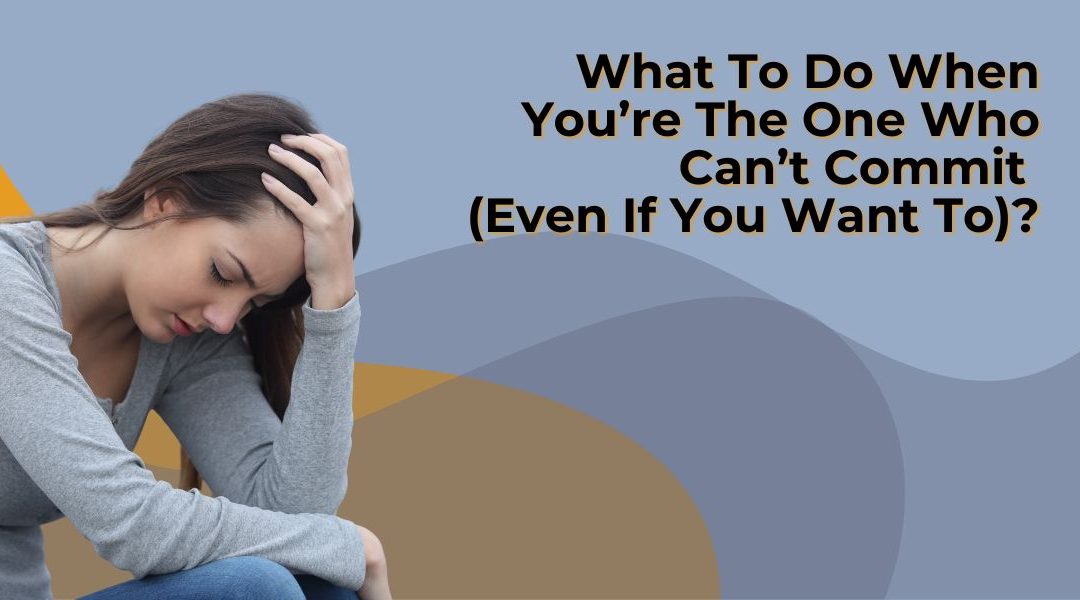It’s a strange place to be.
You want a relationship. You crave connection.
But the moment someone starts getting close—
You pull away.
You start second-guessing.
You wonder if something’s wrong with you.
Sound familiar?
You’re not alone. And no, there’s nothing broken about you.
Fear Of Commitment Isn’t Always Obvious
Sometimes it looks like:
- Getting bored when someone is consistent
- Ending things when it starts to feel too “real”
- Attracting partners who are emotionally unavailable so you don’t have to fully show up
- Feeling overwhelmed when someone expresses care
Most people assume fear of commitment is about not wanting love.
But in reality, it’s often about not feeling safe enough to stay in love.
You might ask: am I emotionally unavailable?
The answer might surprise you.

Where It Comes From?
Fear of commitment isn’t just a mindset.
It often comes from early experiences of:
- Inconsistent caregiving
- Emotional neglect
- Chaotic or enmeshed relationships
When closeness once meant loss of self or constant stress, your nervous system might interpret intimacy as danger.
So even when you want love—you run from it.

How It Shows Up In Relationships?
You might:
- Criticize your partner for small things to push them away
- Keep your options open, just in case
- Get uncomfortable when things feel “too easy”
- Retreat emotionally when things get serious
You may not intend to hurt anyone—but the pattern repeats.
If you’re noticing this cycle, the emotional availability self-assessment can offer helpful clarity.

How To Start Moving Toward Connection?
The goal isn’t to force yourself into commitment.
It’s to build the kind of emotional safety where commitment becomes possible.
Here’s how to begin:
1. Name What You’re Feeling
You don’t have to justify it. Just name it.
“I feel nervous when someone gets close.”
That’s not weakness—it’s awareness.
2. Track Your Emotional Triggers
What thoughts come up when someone treats you well?
What’s your first instinct when you feel seen?
Start writing these down.
Building emotional safety starts with noticing what makes you feel unsafe.
3. Reframe the Narrative
Instead of asking, “What’s wrong with me?”
Try: “What part of me needs reassurance right now?”
This shift makes room for compassion—not shame.
4. Stop Choosing What’s Familiar
Are you attracted to people who feel safe because they’re emotionally distant?
That’s not safety. That’s repetition.
Read: stop choosing emotionally unavailable men

Final Thoughts
Wanting love and fearing commitment can coexist.
But you don’t have to let fear drive the car.
Start slow.
Be honest—with yourself and others.
And remember: every time you show up, even a little, you’re building new emotional muscle.
📥 Free Download: The Four Key Needs for a Successful Relationship
Want to create safety in your relationships without losing yourself?
Grab my free guide:
The Four Key Needs for a Successful Relationship
This quick PDF will help you understand the emotional blueprint behind healthy, steady, safe connection.


